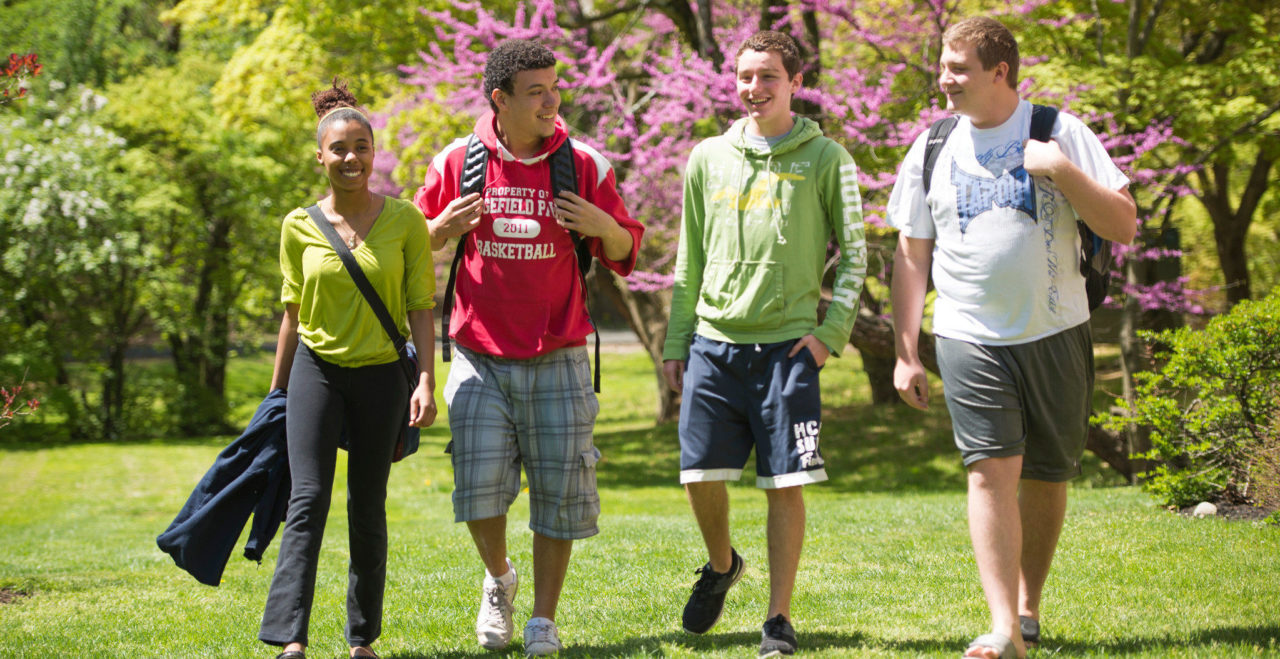History BA

Admissions Planning Message
This program is not open for new enrollment. For more information see this announcement. Students may wish to consider a degree with several newly created concentrations in the Social Sciences. You may also wish to browse through the program finder.
History is the study of the human past from a wide variety of methodological perspectives and is an ongoing process of learning and discovery. Investigating history requires students to search out, critically analyze and lucidly present information in order to make sense of complex situations. These are the skills that decision-making in government, law, business, journalism and other fields requires.
The major is designed to provide students with a nuanced understanding of the past in a wide variety of geographical and chronological settings, and to equip them with the tools and skills necessary to become effective critical thinkers, researchers and writers. History majors interested in a career in teaching may also be admitted to QUEST, the five-year accelerated preparation program for teaching certification.
Why Study History at FDU?
History students at Fairleigh Dickinson University:
- learn in small classes emphasizing student participation (average class size is 20, with upper division classes averaging 12);
- develop close working relationships with their teachers through independent studies, student-faculty research, activities outside of class, and individual mentoring and advising;
- prepare for life after graduation through internships, coursework relevant to a range of fields, and by developing the critical reading, writing, and analytic skills strongly desired by employers;
- go on to careers in government, law, teaching, research, writing and journalism, and archival and museum work, among many other fields;
- study diverse subjects including such courses as Crime and Punishment in Southern Africa, The U.S. as a Global Power, The Indian Ocean, The History of Sexuality in the United States, and Medieval History in Film;
- work with faculty who have been recognized by their students and peers as extraordinary teachers whose research spans the globe, including studies of missionaries in Africa, imperialism in the Philippines, the role of religion in reform movements, and medieval warfare.
Program Learning Outcomes
At the conclusion of this program, graduates will be able to:
- Attain mastery of raw facts relating to the subject matter.
- Explain how and why historians tell different stories about the past.
- Interpret primary sources in a sophisticated manner.
- Write papers that are largely free of grammatical and mechanical errors, and that exhibit appropriate style.
- Form and support arguments including a clear thesis that is supported by evidence.
Degree Plan
NOTE: All NOTE: All students are required to complete the General Education Requirements of their campus in fulfillment of their Bachelor degree requirements. students are required to complete the General Education Requirements of their campus in fulfillment of their Bachelor degree requirements.
History majors must complete 33-42 credits plus 3 cognate credits in the discipline including World History I and II, and Historical Methods. They must also study at least one historical area organized around the world’s great waterways. History students also complete a 4000-level seminar and take elective courses distributed between western and non-western history.
Major requirements (33-42 credits plus 3 cognate credits)
6 credits from the MAJOR may be applied toward General Education Requirements
Required History Courses (15 credits)
Choose at least one of the following four courses
- HIST2400 Indian Ocean
- HIST2401 Pacific Worlds
- HIST2402 Atlantic Worlds
- HIST2403 Mediterranean Worlds
Choose at least one from the 4000 level seminar (Note: Prerequisite HIST 3802 Historical methods)
Major elective courses (18-27 credits)
Note: select three credits from each of the following areas (from 1-4). At least six credits of major electives must be at the 3000-level.
- Africa & Asia
- Europe
- Latin America
- United States
Cognate requirements (3 credits)
- GEOG1102 Geography & World issues
6 credits from the MINOR may be applied toward General Education Requirements
Internships
Every semester we offer a three-credit internship in history. Students, together with their instructors, identify appropriate internship sites and opportunities, and earn regular course credit for work in public history. Students work at a historical site each week and conduct historical research. In short, they do history. Interns complete hands-on projects, supplementing their classroom experiences with pragmatic and intriguing learning environments.